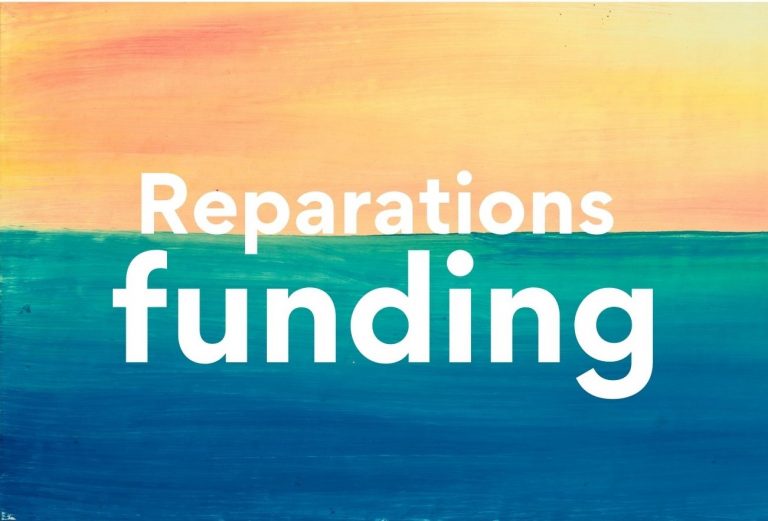Public Comment: Black Reparations Are a Necessary Response to Real, Measurable Harm

Photo: City of Ashville, NC
The following public comment was offered at the June 30, meeting of the Amherst Town Council.
My name is Michele Miller, and I want to begin by thanking the Town Council and the Governance, Organization, and Legislation Committee for your continued work on the charge for the successor body to the African Heritage Reparation Assembly (AHRA).
It’s been almost two years since the AHRA submitted its final report. And while it’s taken time to get to this point, I know that every question, every edit, every round of deliberation has come from a place of deep care and responsibility. I’m grateful for that. This is not easy work, but Amherst has never chosen the easy path over the right one.
In the time since the AHRA submitted its final report, our town has continued to grow in this work.
A new cultural center, Ancestral Bridges, has opened its doors – giving us a place to gather, to learn together, and to confront the erasure of Black presence in our shared history.
The Black Business Association of Amherst Area has expanded in both size and impact, creating space for economic empowerment and visibility.
The Town’s DEI Department, in partnership with Dr. Barbara Love, hosted liberatory visioning sessions to help residents imagine and articulate a future grounded in equity. And just recently, they convened a community session to better understand the needs and experiences of BIPOC residents here in Amherst.
All of these efforts – these organizations and initiatives that are moving us forward – are doing so with limited funding, especially now. And yet, they are creating real, tangible progress.
Can you imagine what they could do with the intentional support and aligned partnership of the reparations fund? That’s the opportunity before us: to match moral commitment with material backing, guided by shared values and clear purpose.
I also want to briefly name just a few national data points, to remind us why this work is urgent:
- The median Black household income remains nearly $30,000 less than white households.
- Black families still hold only 24 to 27 cents for every dollar of white wealth.
- Black women are more than three times as likely to die from pregnancy-related causes.
- One in three Black renter households lives below the poverty line.
- And even with equal education, Black workers still earn just 80 cents on the dollar.
This is why reparations matter – not as a symbolic gesture, but as a necessary and grounded response to real, measurable harm.
Amherst has already shown what it means to align our values with our budget. The formation of this successor body is the next step – not a conclusion, but a continuation of the promise we made to our community.
Let’s move forward with clarity, courage, and care – and show what’s possible when justice becomes not just a value, but a practice.
Michele Miller is a resident of Amherst’s District 1 and a former town councilor from that district.
